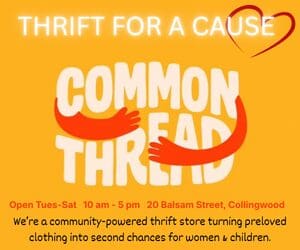By David Suzuki
For many people “bees” means “honeybees” — the prolific insects that flit from flower to flower, collecting nectar and pollen to take back to their hives. They’re important agricultural pollinators and produce honey and wax that humans gather and use. Their utility to people has heightened fears about “colony collapse disorder,” in which various suspected causes — fungi, mites, parasites, pollution, insecticides and starvation — have killed off unusually high numbers of colonies.
Still, honeybees have proliferated, thanks in part to the growing popularity of urban beekeeping. That may sound good, but it poses problems.
Honeybees, Apis mellifera, haven’t always lived in North America. They’re native to Europe, Africa and parts of Asia and were brought here by Europeans starting in the early 17th century. They weren’t put into widespread use as agricultural pollinators until the 20th century.
As the Xerces Society for Invertebrate Conservation points out, “They became increasingly important with the advent of larger monocultures and the use of broad-spectrum insecticides. To fulfill the demand for crop pollination, millions of hives are managed in and trucked all over North America.”
Despite colony collapse, there are likely more honeybees on the planet now than ever before. As honeybee populations grow and spread from country to city, from backyards to gardens to rooftops, many of the estimated 3,600 native wild bee species in North America — including about 800 in Canada — aren’t faring so well. Most bees are solitary, nesting alone in crevices, hollow stems or underground burrows. None of the native species in Canada make honey. Unlike honeybees, solitary bees and bumblebees are vulnerable to habitat loss.
From shiny sweat bees to industrious mason bees, these native pollinators are quietly vanishing. A comprehensive study of bees in Montreal underscored this issue. From 2013 to 2020, as honeybee hives skyrocketed from 250 to nearly 3,000, native bee populations nosedived. Each hive can house up to 50,000 honeybees, leading to significant competition with solitary wild bees. This seesaw effect between hive expansion and native bee decline is a clear sign that our good intentions might be off track.
The research suggested beekeepers maintain a sustainable threshold of three honeybee hives per square kilometre to avoid crowding out native bees. In dense urban areas, this threshold is often exceeded, creating a highly competitive environment.
Looking at the bigger picture, we see that insect populations overall have declined globally by more than 45 per cent over the past 40 years. Insects are vital for pollinating plants, providing food for birds and other animals (including humans!) and recycling nature’s waste. It’s not just native bees that are declining, but also butterflies, moths and other key pollinators. In Canada, many butterfly and moth species are at serious risk, highlighting the urgent need to rethink our practices.
Honeybees are often at the centre of “save the bees” campaigns, but they’re not always the best pollinators, nor are they the most in need of conservation. Domesticated honeybees are, in many cases, outcompeting native wild bees.
We need to shift toward more inclusive urban pollinator strategies. Instead of adding more honeybee hives, let’s turn our cities into pollinator paradises by planting native wildflowers, creating habitat corridors and conducting citywide pollinator health assessments. The David Suzuki Foundation has a number of resources to help get things blooming, including LawnShare, the award-winning Butterflyway Project and Butterflies in My Backyard, or BIMBY.
This doesn’t mean abandoning honeybees; it just means balancing our enthusiasm for them with the needs of all pollinators. It’s time to rewild our urban spaces, making room for every bee. Swapping hives for habitats — think wildflower gardens and undisturbed nesting sites — is the way forward.
And we shouldn’t just focus on the many services bees provide for humans. As conservation biologist Sheila Colla writes in Canadian Geographic, “Our native bees have relationships with microorganisms, parasitoids, plants, birds and mammals that we have barely begun to understand. Just as with larger, charismatic animals like polar bears and white rhinos, the conservation value of native bees should not and cannot only be defined by what they can do for us.”
Let’s adapt our practices to ensure urban environments support all pollinators, not just honeybees. This is crucial for the health of our planet and the vibrant tapestry of life that sustains us all.
David Suzuki is a scientist, broadcaster, author and co-founder of the David Suzuki Foundation. Written with David Suzuki Foundation Rewilding Communities Program Manager Jode Roberts.
Learn more at davidsuzuki.org.
REFERENCES:
Colony collapse disorder:
https://www.epa.gov/pollinator-protection/colony-collapse-disorder
Xerces Society for Invertebrate Conservation points out:
https://www.xerces.org/blog/want-to-save-bees-focus-on-habitat-not-honey-bees
Comprehensive study of bees in Montreal:
https://peerj.com/articles/14699
45 per cent over the past 40 years:
https://www.pnas.org/doi/10.1073/pnas.2023989118
Many butterfly and moth species are at serious risk:
https://canadiangeographic.ca/articles/working-towards-a-wild-pollinator-strategy-for-canada
David Suzuki Foundation has a number of resources:
https://davidsuzuki.org/project/pollinators
LawnShare:
https://davidsuzuki.org/take-action/act-locally/lawnshare
Butterflyway Project:
https://davidsuzuki.org/take-action/act-locally/butterflyway
Butterflies in My Backyard:
https://davidsuzuki.org/take-action/volunteer/citizen-science/bimby
Sheila Colla writes:

























